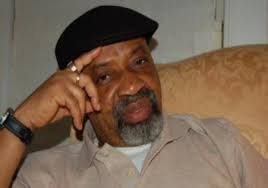Minister of Labour and Employment, Sen. Chris Ngige, says Nigeria as a developing country would be unable to meet the United Nations (UN) and the World Health Organisation, WHO recommended ratio of one doctor to 600 patients.
Ngige said this on Friday at a two-day quarterly meeting of the Nigeria Health Commissioners Forum in Abuja.
The meeting was convened to discuss how to strengthen the health system at the sub-national levels, with an overall objective of achieving Universal Health Coverage (UHC).
“We’re not a United Nations’ country; we are a developing country. So, when such figures are given, I will tell them every rule has an exception. We are not yet there.
“So, we shall make do with what we have. And when they’re saying he said yes, surplus doctors. We have surplus; I keep on telling them that we have not deployed our medical manpower proportionately and adequately as we should do”, Ngige said.
He querried: “How many doctors do we have in the rural areas and in the suburbs since everybody is in the townships, with a medical and dental council data showing 4,000 doctors every year?
“Before, it used to be 3000, before the private universities came. A lot of them are doing medicine, including Afe Babalola and others.
“We are now in about 4000 plus; the people even trained abroad are coming back from Russia and Ukraine and the rest of them; Medical and Dental Council of Nigeria (MDCN) is registering them.
“So, almost everybody has come to Abuja, Lagos and Port Harcourt to stay. And we have 10,000 primary care centres that are unmanned as at the last count.”
In his remarks, Lagos State Commissioner for Health, Prof. Akin Abayomi, called on state governors to create an enabling environment for physicians in their states.
Abayomi said that there were more than 20,000 Nigerian born physicians outside the country doing extremely well.
“This is why our governors should create an enabling environment for our physicians. By now, Nigeria should not be talking about brain drain rather, it should be talking about bringing back our physicians to the country,” he stressed.
Speaking on how the state was responding to COVID-19 pandemic, Abayomi noted that Lagos state used the experience it had acquired in 2015, when it responded to the Ebola outbreak.
“This experience has helped us to effectively control the spread of the virus in the state despite, our huge population.
“We had robust data collection supporting our policy decision making. We built a system of data collection, analysis and interpretation along the lines of each pillar of the Emergency Operations Centre (EOC).
“We then invested in technology to automate our data collection system through the information and implementation of the Lagos state emergency response system (LASERS), which allowed us to get data in real time for our response”.
Abayomi however, advised that the civil service should not be used to structure or manage any-pandemic, instead, a quick policy should be developed to raise funds for effective pandemic management otherwise, the whole system would go down.
He disclosed that Lagos was emergency ready to defeat an imminent deadlier fourth wave of the COVID-19 pandemic and future pandemics in the state, adding that the state had learnt from the first three waves.
Meanwhile, The Director-General, Nigeria Centre for Disease Control (NCDC), Dr Chikwe Ihekweazu, advocated for states to play a critical role in strengthening the health security of the country.
Ihekweazu, who was represented Dr. Priscilla Ibekwe, Director, Special Duties, NCDC, said states have the responsibility for the health of her population, including preparedness and response to outbreaks of diseases.
“States have the resources, expertise and experience to strengthen the response to the coronavirus pandemic and other disease outbreaks in the country.
“We need stronger political commitment, leadership, and funding to fight against any outbreaks,” he noted.
Dr Onoriode Ezire, Senior Health Specialist, International Finance Corporation of the World Bank Group, outlined the conditions for inclusion of a state in a World Bank project.
These included a common agreement between the Ministry of Finance and the Governors on a set of transparent eligibility criteria.
“States will only be included in a project if the state’s participation would contribute to a meaningful improvement of that development indicator.
“Demonstrated commitment to reform by the state and a demonstration of ongoing commitment throughout the life of a project, including meeting minimum performance criteria, adopting state legislation needed to establish an enabling environment for reform, and establishing the appropriate institutional framework to implement a reform program,” he explained.
Ezire noted that the design of multi-state operations would pay close attention to ensuring conditions for mutual accountability of both the Federal and state governments.
The meeting focused on health issues such as the Basic Health Care Provision Fund; strengthening Primary Health Care; HIV/AIDS control with its multi-sectoral consequences; UHC, Health Insurance, as well as various high impact interventions being implemented either directly or with development partners.
It also identified challenges and outlined the implementation of partnership support at the sub-national level, and articulated measures to address them for adoption.

